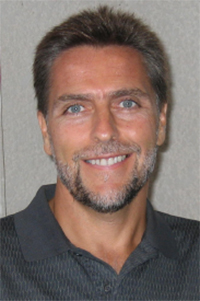Date/Time
Date(s) - 03/21/2023
9:15 am - 10:15 am
Location
New Engineering Building – Room 201
Categories
John F. Brady, Ph.D.
Chevron Professor of Chemical Engineering and Mechanical Engineering
California Institute of Technology
Title: The Mechanics of Active Matter
Abstract: A distinguishing feature of many living systems is their ability to move – to be active. Through their motion living systems are able self-assemble: birds flock, fish school, bacteria swarm, etc. But such behavior is not limited to living systems. Recent advances in colloid chemistry have led to the development of synthetic, nonliving particles that are able to undergo autonomous motion by converting chemical energy into mechanical motion and work. This intrinsic activity imparts new behaviors to active matter that distinguish it from equilibrium systems. Active matter generates its own internal stress, which can drive it far from equilibrium, and by so doing active matter can control and direct its own behavior and that of its surroundings. In this talk I will discuss our recent work on active matter and on a new source of stress that is responsible for self-assembly and pattern formation in active matter systems.
Bio: John F. Brady is the Chevron Professor of Chemical Engineering and Professor of Mechanical Engineering at the California Institute of Technology. He received his BS in chemical engineering from the University of Pennsylvania in 1975, which was followed by a year at Cambridge University as a Churchill Scholar. He received both an MS and PhD in chemical engineering from Stanford University, the latter in 1981. Following a postdoctoral year in Paris at ESPCI, he joined the Chemical Engineering department at MIT. Dr. Brady moved to Caltech in 1985.
Dr. Brady’s research interests are in the mechanical and transport properties of two-phase materials, especially complex fluids such as biological liquids, colloid dispersions, suspensions, porous media, active matter, etc. His research combines statistical and continuum mechanics to understand how macroscopic behavior emerges from microscale physics. He is the co-inventor of the Stokesian Dynamics technique for simulating the behavior of particles dispersed in a viscous fluid under a wide range of conditions. Recently, Dr. Brady discovered a new organizing principle for active matter known as the swim pressure.
Dr. Brady has been recognized for his work by several awards, including a Presidential Young Investigator Award, the Professional Progress Award of the American Institute of Chemical Engineers, the Bingham Medal of the Society of Rheology and the Fluid Dynamics Prize of the American Physical Society. Dr. Brady served as an associate editor of the Journal of Fluid Mechanics and editor of the Journal of Rheology. He is a fellow of the American Physical Society, the American Academy of Arts & Sciences and a member of the National Academy of Engineering and the National Academy of Sciences.

